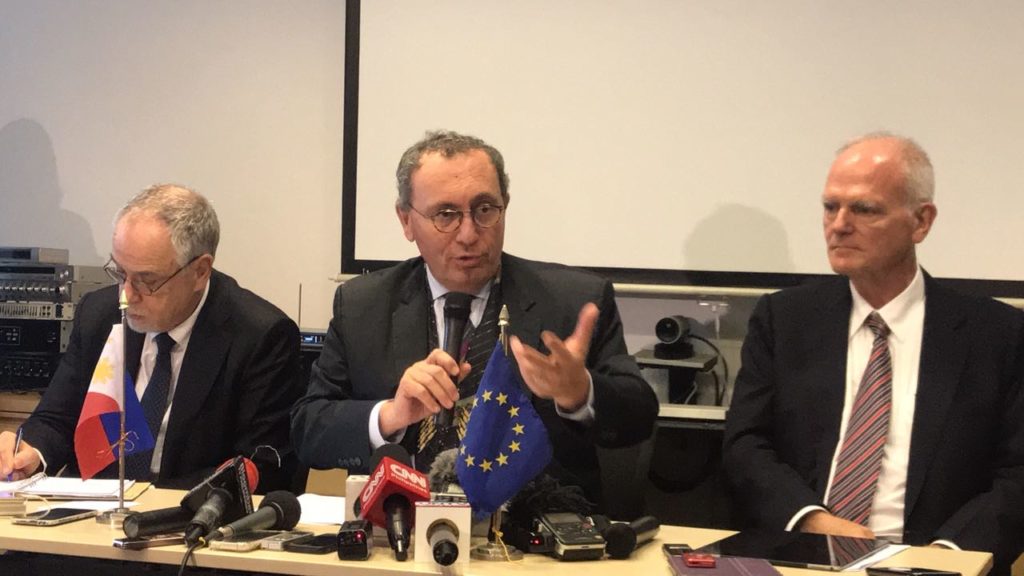
European Commission Director General for International Cooperation and Development Stefano Manservisi says European Union aid to the Philippines will “go on as it is.” Jhoanna Ballaran/INQUIRER.net
The European Union (EU) aid to the Philippines would continue despite the powerful bloc’s critical stance against human right violations in the country linked to the administration’s controversial campaign against illegal drugs.
European Commission Director General for International Cooperation and Development (Devco) Stefano Manservisi announced this on Friday shortly after his meeting with National Economic Development Authority (Neda) Sec. Ernesto Pernia.
“The development projects can go on as it is,” Manservisi said in a press conference at the EU Delegation headquarters in Makati City.
“This [human rights situation] is something we’ve expressed concern, this is part of the political dialogues but this does not imply an automatic conditionality that since we have a concern, therefore we suspend our cooperation. This is not true,” he said.
The aid covers a total of 170-million Euro projects in Mindanao and renewable energy.
Manservisi said that the Philippines and the EU were already in the final stage of drafting the project contract or the financial agreement, which includes the details of the project implementation.
He explained that the EU would modify certain parts of the agreement to fit the demands of the Philippines following the statements of President Rodrigo Duterte critical of the EU.
There would also be no need for the EU to explicitly mention human rights in the agreement, Manservisi said, as the PCA recently ratified by the Senate—which includes explicit provision on the respect for human rights–“regulates” the development agreement between the two parties.
“Now that we have a Partnership and Cooperation Agreement, which regulates everything in legal terms, [it] is not useful to keep repeating the same thing. There is a mention of human rights in Article 1 of the PCA,” he said.
“Therefore, in a contract, in the financial agreement, it is sufficient to say that if one of the two party is not respecting the agreement that is linked to international convention, PCA, then it could be a mechanism which can lead to the suspension,” he added.
Manservisi also clarified that the EU did not cancel the 6.1-million Euro project on Trade-Related and Technical Assistance (TRTA) as the fund merely expired because of the absence of an implementation agreement between the bloc and the Philippines.
“This has been canceled because there was not an agreement on how to spend it; this was trade-related issue. Therefore there’s nothing to do with the implementation of a conditionality [that is] human rights based, just to be clear,” he said.
READ: 6-M Euro aid gone
In October last year, Duterte said the Philippines would no longer accept grants from the EU for allegedly disrespecting the country’s sovereignty following a group of European parliamentarians’ move to denounce human rights violations in the country.
He also told EU envoys to leave the country in 24 hours following the incident.

